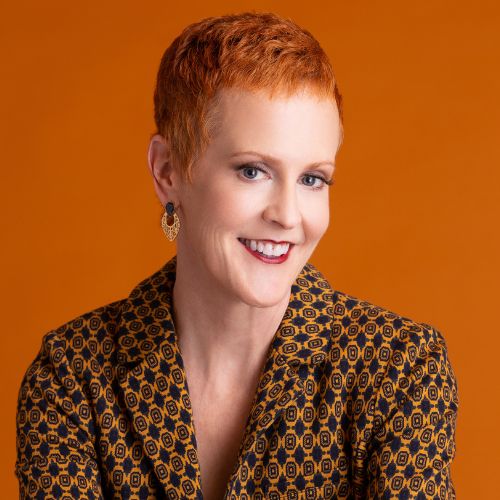Millions of Americans are currently seeking a career change. If you are too, you’re not alone. Studies show that the average person will change jobs around 12 times in their lifetime, and that 30% of people will change jobs every 12 months. In recent years, polls show more than half of Americans stated they will be seeking a career change in the year the poll was taken.
Changing your career outright can be scary. After all, your career is a key pillar of your life. Your home, your family, your retirement, your healthcare, and even how you spend your free time depend on it. It will never to be taken lightly.
So, what if you discovered that there was a specialist out there whose expertise is to help you do it by helping you uncover the right career for you, and help you stand out for those types of jobs over other applicants? What if there was someone who would be willing to hold your hand through the whole process, offering you valuable advice and encouragement?
What you’re looking for is a career transition coach. There are professionals all over the country who specialize in pairing the right people with the right careers – and you can access their expertise directly by reaching out to them.
Understanding Career Transition Coaching
Definition of a Career Transition Coach
Career transition coaching is not like hiring a personal trainer, who will tell you what to do and when to do it to get specific results. Instead, a career transition coach is someone who will help you discover and refine your inventory of talents and skills today, will teach you how to highlight those skills on a resume or in an interview, and act as someone to lean on when it gets hard.
If you’re not ready to leave your current employer, that’s okay, too – career transition coaches can also help you to climb the ladder at your current position, or even find a new role within the same organization or field that is a better fit for you and your personal brand.
The Role of a Career Transition Coach
Career transition coaches are more specialized than regular career coaches. They should not be confused with other types of work-related coaching specialties, such as executive coaching, which seeks to make you a better executive. Corporate employee development offerings often do not support you in development work where the outcome may be that you realize your organization is not the right place for you. Career transition coaches will help you with any and all outcomes.
The Benefits of Working with a Career Transition Coach

Navigating Career Changes
Most people will wind up spending 40 hours a week or more at their workplace. This is (if you’re getting enough sleep!) just under half of your waking hours. You don’t want to spend almost half of your life doing something you no longer like.
If your career no longer fits who you have become, don’t feel trapped or discouraged. Change and growth is natural and a wonderful experience. You have evolved to have different needs and expectations. Take a deep breath and recognize that it is okay if what was once perfect no longer is.
Developing Skills and Strategies
Good career transition coaches go beyond simple resume building, interview skills, and networking strategies that anyone can do. Professional career transition coaches focus on identifying and then building up your personal brand first.
They encourage you to take stock of your talents, skills, experience, wisdom, and personal attributes that make you unique and differentiate you from other candidates. As I state in my programs: “When you show up 100% as your unique self, you have no competition.”
Emotional and Psychological Support
Great career transition coaches will guide you through the process of doing just that, while also acting as an ally who will help you through all the stress, uncertainty, grief, and fear that inevitably go hand-and-hand with career change.
Finding the Right Career Transition Coach

Where To Look
Finding the right career transition coach may seem difficult – or even impossible – but it doesn’t have to be. A good source of insight into finding good coaches are your peers. There are also networking organizations and events, as well as professional networks that can be tapped, such as LinkedIn.
You will also need to decide whether you prefer in-person or digital consultations. While in-person consultations may seem like the more desirable option, remember that digital options will open you up to even more professional coaches that may not be local to your area but may be a spot-on match for what you need.
What To Look For
When selecting a coach, pay attention to their experience, the digital trail of insights and knowledge they have on social media, how many years they have spent working in this field, do they have a process or program, and what is their track record of accomplishments and more importantly, the testimonials for those they have coached.
Their professional website will give you additional clues including those client testimonials. There’s no better gauge of a professional’s talent than the words of their previous customers!
Evaluating a Potential Career Transition Coach
Most seasoned career transition coaches offer a free initial consultation, primarily to determine whether you and they are the right fit.
During this consultation, don’t be afraid to ask questions about their methods, their personal coaching philosophy, and their experience.
Preparing for Your First Session

Setting Goals & Expectations
Your first session with your coach should include setting clear goals and expectations.
Your coach is there to support and guide. Good coaches have a stepwise process they have developed for their clients. The process gives you the ability to see what the incremental steps are and set your goals accordingly.
Topics To Discuss with Your Coach
It’s important to have a list of your own aspirations ready to discuss in your first session. You can do so even if you haven’t fully decided exactly what career you’d like to dive into just yet. It may also be beneficial to bring up your unique strengths to amplify and gaps to bridge, challenges you’ve experienced, and skills you have or that you feel like you need to develop.
Be prepared to tell a little bit of your own story – and not just the story of your career. Understanding what ignites your passion will help your career coach guide you as you step forward together.
“You need to develop your story to amplify your differentiation from others while remaining faithful and consistent with who you are. Once you have this, you are ready to take that authenticity and strong presence into the next phase of your career journey.” ~Erin Duffy
Maximizing the Relationship with Your Coach
In order for you to build a productive partnership with your coach, you must come to your sessions ready to be honest about your strengths, weaknesses, and overall goals. If you are unwilling to be (sometimes brutally) honest, you will not be able to reach the career you really want.
Be flexible, put in the effort outside of your coaching sessions as you build new skills. Carry on the plans you designed during your sessions. Take some chances and step out of your comfort zone.
If something is not working out or your feel uncertainty, let your coach know that you need to take a different approach. You are paying them to help you – so let them!
Conclusion
Anyone considering a career change of any sort could benefit from a career transition coach, regardless of whether you’re looking to completely pivot and try out a new field or simply continue climbing the ladder at your current company in new roles.
Career transition coaches provide many benefits, and, if you’re willing to put in the effort, they will help you build a transition plan to reach your dream career.
For more information on career transition coaches or to schedule a consultation, request a discovery call here.



